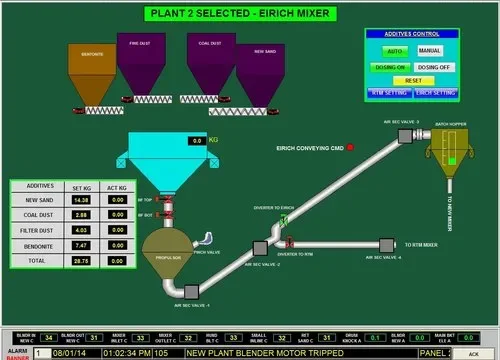Businesses are searching for methods to make sure that their intricate technologies integrate seamlessly as sectors undergo fast evolution due to the integration of automation, robotics, and data analytics. System integrators can help with that. System integrators are the masterminds that integrate all these moving components into a seamless and effective ecosystem, frequently operating in the background.
Who Are System Integrators?
They are businesses or professionals in charge of integrating various technical systems. They combine automation tools, networks, software, and hardware into a single coherent operation. System integrators are known to install devices along with ensuring that the entire system satisfies business needs. Moreover, all parts would communicate correctly with one another.
For instance, they would link data dashboards, barcode scanners, robots, and conveyor systems to work flawlessly in a production facility. It results in a smooth process of combining disparate systems.
Why Are System Integrators So Important?
Modern industries have become dependent on complex technologies. Machines may function independently but inefficiently without integration. System miscommunication results in data silos, delays, mistakes, and higher expenses.
This is resolved by system integrators through:
Process automation
Linking data sources
Minimizing human mistake
Increasing output
Enhancing overall effectiveness
To sum it up, they have been serving as a strategic partner, coordinating IT infrastructure with corporate objectives.
Key Responsibilities of System Integrators
A system integrator’s duties include:
Evaluating the current infrastructure
Creating business-specific integration solutions
Installing and setting up devices and software
Ensuring cross-platform real-time data sharing
Supporting and preparing for future scalability
Their aim would be to guarantee your systems functions cohesively and effectively regardless of various suppliers and platforms involved.
Industries That Depend on System Integrators
A system integrator’s duties include evaluating the infrastructure that is currently in place.
Creating business-specific integration solutions
Installing and setting up devices and software System integration is advantageous for almost all contemporary industries, including:
There should be close communication between assembly lines, sensors, control systems, and analytics platforms during manufacturing automation.
Logistics and Warehousing: All systems such as automated conveyor belts and inventory management should be integrated for quicker fulfilment.
Healthcare: Digital records, diagnostic equipment, and patient data systems should work together.
Energy and Utilities: For safety and effectiveness, real-time integration is essential for monitoring and distribution systems.
Ensuring cross-platform real-time data sharing
Supporting and preparing for future scalability
Their aim is to guarantee that your systems function cohesively and effectively despite the number of suppliers or platforms involved.
The Strategic Advantage
Dealing with a skilled system integrator may alter everything. In addition to having more efficient operations, businesses are better positioned for innovation. Adoption of AI, IoT, and predictive analytics technologies is facilitated by fully integrated systems.
Maveneer’s blog offers insightful information on system integrators’ roles and how they contribute quantifiable value to contemporary operations, which may help readers better comprehend how these professionals are changing industries.
Conclusion
It is no longer sufficient to have cutting-edge technology in the linked world of today. Co-operation by your system will determine your effectiveness, flexibility, and success. The system integrators are experts that enable cooperation to advance companies by transforming disparate technologies into cohesive and intelligent systems.



